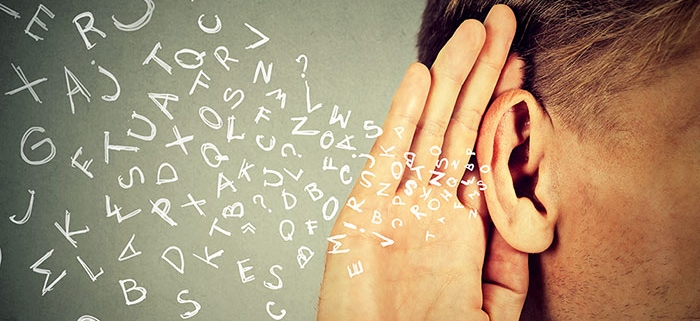Signs of hearing loss – Part one
As we get older, our bodies start to break down. It’s hard to admit, but it’s life.
Joints aren’t what they used to be, our eyes have trouble focusing, and our teeth rot.
And, most commonly, our hearing starts to go.
And it’s not surprising. Our ears take a lot of abuse over the years, especially in our younger days of rock concerts, nightclubs and headphones.
About half of people over 75 need a hearing aid, but it’s difficult to notice when you start to lose your hearing.
Here are three signs it may be time to book a hearing test.
People start to mumble
It’s human nature to immediately blame others rather than ourselves if something’s not right.
It’s not your fault you were late, the traffic was bad.
It’s not your fault you forgot to hang the washing out, your neighbour distracted you.
And it’s not your fault you can’t hear someone properly, they mumble too much.
The first part of hearing to fade with age is the ability to discern high-frequency sounds.
In speech, those are consonant sounds and digraphs, like “ch” and “sh”. When you can hear vowels but not consonants, it sounds like people are not speaking clearly, so it’s easy to blame them for mumbling rather than your own hearing.
If you’ve found yourself telling people to stop mumbling lately, maybe they’re not the problem.
COVID-19 has been extra tough for you
Without realising it, we rely on facial cues, expressions and lip-reading when it comes to one-to-one communication, even if our hearing is perfect.
We’ve talked before about the impact face masks have had on deaf and hard of hearing people during the pandemic, but many people didn’t realise just how important lip-reading was to them until they couldn’t see the other person’s mouth.
If you’ve struggled speaking to people while wearing a mask, it may be because you were using those facial expressions to fill in for a decrease in your hearing ability. It might even have come as a shock to you because hearing loss can happen so gradually you didn’t even notice it happening.
Speaking on the phone is also more challenging, especially because phones don’t perfectly recreate the human vocal range.
You’ve become a little bit more clumsy
This is one of those surprising side-effects of hearing loss that no one thinks about.
We all know that our balance is to do with our inner-ear, or more specifically the fluid in our inner ears.
Our ears help us figure out where we are, which direction we’re going, and how fast.
That’s why if you spin around quickly you become dizzy; it’s actually the liquid swirling around in your ear, reporting back to your brain things don’t make sense.
When you put hearing aids on people with hearing loss, their sense of balance and ability to sense where they are in space improves immensely.
If you’ve found yourself recently becoming dizzy, knocking things over, or just generally clumsier, it may be because your inner ear isn’t working properly.
Book a hearing test to check everything’s ok.




Leave a Reply
Want to join the discussion?Feel free to contribute!